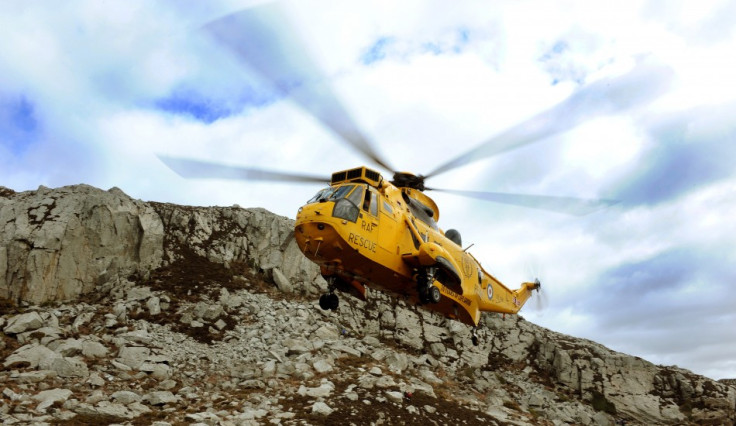Cairngorms Walkers: Man Dies after Leeds University Group goes Missing on Jacob's Ladder

A hillwalker who went missing overnight from the Cairngorms has been found dead.
The victim, a man, was found in the Jacob's Ladder area of the Scottish Highlands national park. It is understood he was in the area with a group from Leeds University.
Five other members of the party who vanished during a trek last night, have been rescued in freezing conditions from what a police spokesman called: "the middle of nowhere".
Survivors were taken to hospital from Rothiemurchus near Aviemore, after being flown off the mountain range by RAF helicopter.
They are not believed to be seriously injured. The survivors were among a 35-strong group of people who visited the wild Cairngorms, last weekend. However, many in the group were in villages in the area, not on the mountain range on Sunday.
Another member of the group suffered a fall in the days before the six walkers went missing.
A Leeds University spokesman said: "We're unable to confirm that they were from the university at this time."
The Cairngorms is the highest and largest mountain range in Great Britain.
A Northern Constabulary spokesman said: "the body of a male was recovered in the Jacob's Ladder area of the Cairngorms. There has been no formal identification at this time, however, there are currently no other outstanding missing people in the area."<
Prince William flies an RAF rescue helicopter on missions. Squadron leader David Webster refused to confirm or deny the Prince had taken part in this operation.
The death of a walker in the desolate and scenic park is the fifth death in the Scottish Highlands in under four weeks.
Last month, PhD students Christopher Bell, 24, of Lancashire, and Tome Chesters, 28, died in a fall, along with junior doctor Una Finnegan, 25, from Northern Ireland and Rachel Majumdar, 29, who worked in Harrogate general hospital.
All four were buried under six feet of snow after a "brutal" avalanche sent them plunging 1,000 feet down a mountainside in Glencoe.
A 24-year-old woman with them was rushed to Glasgow Southern hospital in a critical condition. She remains there for treatment in a stable condition.
More than 100 rescuers spent last night and this morning (Monday) searching for the six missing hikers.
The alarm was raised last night (Sunday) when they did not return to base as planned.
Mountain rescuer Andy Nelson described how quickly conditions can change in the wilderness. He helped rescuer the avalanche group, last month.
"It was a typical Scottish winter day, with strong winds, which isn't unusual, and light snow falling," said Nelson of last month's tragedy.
"The people were on a ridge walk, not climbing per se but walking, and then they chose to descend on the area that avalanched. It was a reasonable route to take, but unfortunately the snow beneath them was very unstable.
"Being in an avalanche is literally like standing on a carpet and having it pulled out from underneath you.
"Any thoughts of trying to swim out from it is futile.
"You are on steep ground, essentially standing on a raft of snow that is sliding downhill at speeds of maybe 40mph to 50mph.
"It would have unfolded in a split second, they would have felt the snow moving and then they would have been travelling at a speed that was impossible to stop.
"It's a brutal experience. There are enormous forces at work and you are being twisted about at high speed."
© Copyright IBTimes 2025. All rights reserved.




















